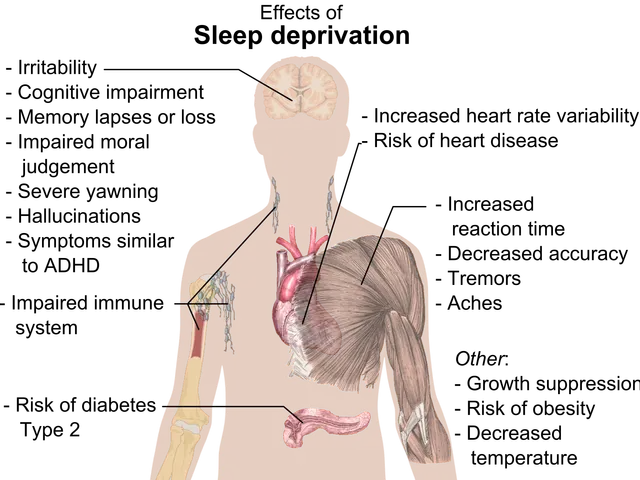Intestinal issues generally attributed to IBS might instead be a result of an unusual hypothesis - 'gravity intolerance'
In a groundbreaking development, gastroenterologist Brennan Spiegel from Cedars-Sinai Medical Centre in Los Angeles has proposed a novel hypothesis to explain the causes of Irritable Bowel Syndrome (IBS). The hypothesis, published in The American Journal of Gastroenterology, suggests that IBS may be triggered by the body's inability to manage gravity effectively.
According to Spiegel, when our body's normal management of gravity fails, the diaphragm can slip downward and compress the intestines. This compression could potentially cause symptoms such as cramping, lightheadedness, sweating, rapid heartbeat, back issues, and bacterial overgrowth.
The hypothesis also highlights the possible evolutionary role of the nervous system as a gravity detector. Spiegel argues that the nerves in the gut may have evolved to warn us when we're experiencing or about to experience a dangerous fall. This could explain the gut sensations often associated with IBS and why people with the condition may over-predict gravity-related threats.
However, it's important to note that Spiegel's hypothesis is a "thought experiment" without direct research. While it has gained attention as a novel explanation, it currently lacks robust empirical evidence and is not yet widely accepted or confirmed by the broader scientific community studying IBS.
The conventional multifactorial causes of IBS, such as abnormal gut-brain interactions, microbial imbalances, immune dysregulation, and visceral hypersensitivity, remain dominant in the literature. For instance, David C. Kunkel, a gastroenterologist at UC San Diego, questions the validity of Spiegel's hypothesis, pointing to countries with lower G-force, such as Iceland, that still have high rates of IBS.
Despite this, Spiegel hopes his hypothesis will encourage new ways of thinking when it comes to treating IBS. He also suggests that an overreactive amygggala might be a key factor in IBS, further opening up avenues for research and potential treatments.
IBS affects approximately 10% of the UK population, making it a significant health concern. As research continues, it's clear that a better understanding of the causes and triggers of IBS is essential for developing more effective treatments and improving the quality of life for those affected by the condition.
- Spiegel's proposal for the cause of IBS, published in The American Journal of Gastroenterology, suggests a possible role of the nervous system in digestive-health issues, as it may have evolved to be a gravity detector, linking mental-health and health-and-wellness.
- The hypothesis suggests that in cases of the body's inability to manage gravity effectively, therapies-and-treatments targeting the amyggdala, an overreactive part of the brain, might prove beneficial in managing IBS symptoms.
- While Spiegel's hypothesis on the gravity-related cause of IBS is gathering attention, traditional understandings of IBS cite factors such as abnormal gut-brain interactions, microbial imbalances, immune dysregulation, and visceral hypersensitivity as more widely accepted concerns, with debates ongoing among medical-conditions experts.





